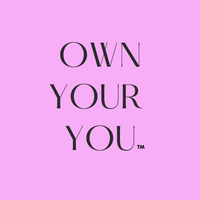Breaking Boundaries: Three Types of Comfort Zones

Episode 40: Unleashing Potential: Exploring The Three Types of Comfort Zones
Read or Listen!
Hey there, and welcome back to another exciting episode of the "Own Your Confidence" podcast. Today, we're delving deep into the world of comfort zones. I've been playing around with this concept lately and realized there are three distinct types of comfort zones: physical, emotional, and mental. In this episode, we'll explore each of them and see how they're all interconnected.
The Physical Comfort Zone
Let's start with the one that often comes to mind first: the physical comfort zone. This is where we encounter the things that scare us in the real world. Think back to that time in 2016 when I embarked on a year of dating myself. I made a list of 52 things that scared me, like going to the movies alone, having dinner solo, or just spending quality time with myself. These were actions outside my physical comfort zone.
Whether it's aiming for a certain look, practicing self-care, building relationships, or pursuing hobbies, they all reside in this realm. If you're an entrepreneur, you know there's a mix of tasks – some comfortably within your zone and others pushing the boundaries. The key here is to expand this comfort zone by embracing actions that scare you. It's all about implementing courage instead of allowing fear to dictate your actions.
Emotional Comfort Zone
Now, let's dive into the emotional comfort zone. When you're on a journey to boost your confidence and create a lifestyle you love, you must acknowledge and navigate your emotional experiences. Feeling emotions is tough, isn't it? We, as a society, have clever ways of numbing them. Everyone has their go-to method, whether it's binge-watching TV, sleeping, or seeking other distractions. Emotional comfort zones are where fear often rears its head. Fear, more often than not, takes the lead when it comes to changing our lives for the better.
Understanding your response to fear is vital. Fear is a constant companion, no matter where you are in life. It will always be in the car with you – your ride or die. Knowing how you react to fear, how it feels in your body, and its power is essential. It's not about becoming fearless; it's about learning to walk hand in hand with fear as you intentionally navigate through life's challenges.
Fear has four main responses: fight, flight, freeze, and fawn. The 'fight' response involves confronting the issue head-on. 'Flight' means avoiding it altogether, opting for any distraction to dodge the challenge. 'Freeze' is the indecisive stance, where you can't make a move until something else forces your hand. 'Fawn' involves people-pleasing, where you accommodate others to evade the fear.
Understanding how you react to fear and choosing how to respond is crucial when you intentionally put yourself in fearful situations.
The Mental Comfort Zone
Finally, we arrive at the mental comfort zone. This zone comprises your belief systems, the ideas you've been handed down, the stories you've crafted, and the assumptions you've held as truth. The incredible thing about humans is our ability to rewire our brains. We can fundamentally change the way we think and, in doing so, shape our reality.
Let me illustrate this with a podcasting example. Imagine you want to start your own podcast, but your default thought is, "It's too hard." This thought triggers fear, leading to overwhelm and avoidance. But, if you deliberately shift your mindset and adopt thoughts like, "I'm learning to start a podcast," you infuse intention into the process.
This change in mindset transforms the experience. Now, you're motivated, even amidst fear. You're surprised and maybe even excited. Fear is still there, but it's accompanied by other emotions that empower you to take the first step. This shift in thoughts can redefine your actions and lead to meaningful progress.
Your thoughts are the creators of your emotions, which, in turn, drive your actions. To change your life, you must uncover your current mental comfort zone and identify the new one you want to build.
Remember, these three comfort zones – physical, emotional, and mental – are deeply interconnected. One influences the other, and they all impact how you navigate the world and achieve your goals.
Understanding and intentionally expanding your comfort zones is the key to unlocking your potential. By recognizing your responses to fear, navigating your emotional experiences, and reshaping your thought patterns, you can shift your life in remarkable ways.
Here's to stepping out of your comfort zones and owning your confidence.







Comments